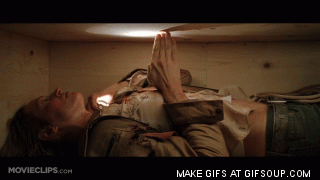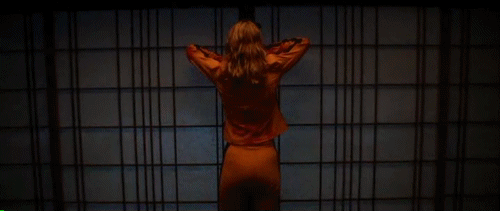(Eureka Effect, continued):
Apparently, the “Eureka Effect” is actually a two phase process.
And it’s not the process that’s so complicated – it’s us. We overthink the shit.
First, we’re at an impasse – we think we’ve explored all the possibilities and say dumb contradictory shit like “I know for a fact it’s in the house, but I’ve looked everywhere” when we misplace our keychain. This thought and verbal affirmation often makes us keep looking in the same five places the keys weren’t when we checked two seconds before – over. And over. Then someone will walk in from the other room and say something like, “Did you see that girl with a sad story on American Crydol last night?” and you’ll say “OMG! That’s right! I put it the keys on the TV set!”
This “impasse” is just our brains running in circles.

A few ideas for the solution may initially come to us, we lock those thoughts down as being the resolution options, and subsequently get stuck in that mental fixation.
Sometimes the answer can become clearer by reevaluating the actual question/problem alone and looking at how you’ve gone about it (a friend of mine calls this “backing your plays”). Sometimes, however, if we’ve subconsciously convinced ourselves that our initial thought-response is the only possible means to achieving an answer, we don’t think outside of the idiot box (or on top of it – if that’s where you left your keys).
That’s why somebody merely walking into the room while they scratch their balls can be enough to break the spell.
They don’t even have to say anything necessarily to cause it. Our sensory input (ie what we see) sets off a cascade of mental associations and memories. So if I’m in the same room, looking at the same shit around me while I’m mentally fixated on something, I’m gonna stay stuck in that same frustrated state of confusion. That’s what I was seeing at the start of the cognitive clusterfuck. No new stimuli are available to offer a bridge onto another neural network of ideas.
If something new gets introduced, though – by me changing scenes, putting on my ipod, or even just receiving a video of Nicolas Cage’s face on Miley Cyrus’ body – that interruption with new information is like breaking news during scheduled programming. It has the potential to remind me of that one thing that reminds me of another thing that’s got some synaptic tie to the answer.
And that cascade of associations that can happen in a matter of seconds, is enough to break the spell and educe Eureka!
Thus, the hardest part about having a Eureka moment and conquering cognitive laps that lapse critical thinking, is being open enough to say, “I gotta get the eff outta here,” at the outset of cyclic anxiety during problem solving.

Or, it could just be looking down at my word count, seeing how long a blog is, and saying, “I should totally make this into a two-part series to maximize views.”
That’s all.
Oh no. Wait. There’s more. Here’s some insight for ya:
What if the real Archimedes story is that he just went to his first public bath and the dudes stunk so bad that he ran off naked, shouting, “You reek! Ugh!”
Zing!
Wait – is “zing!” the “Eureka” of cheesy one liners?
And is “boom” the modern “Eureka”?
Discuss:
1 Comment
Eureka Effect: What IS that? « Miss Ashley Pants
[…] (Continued here) […]